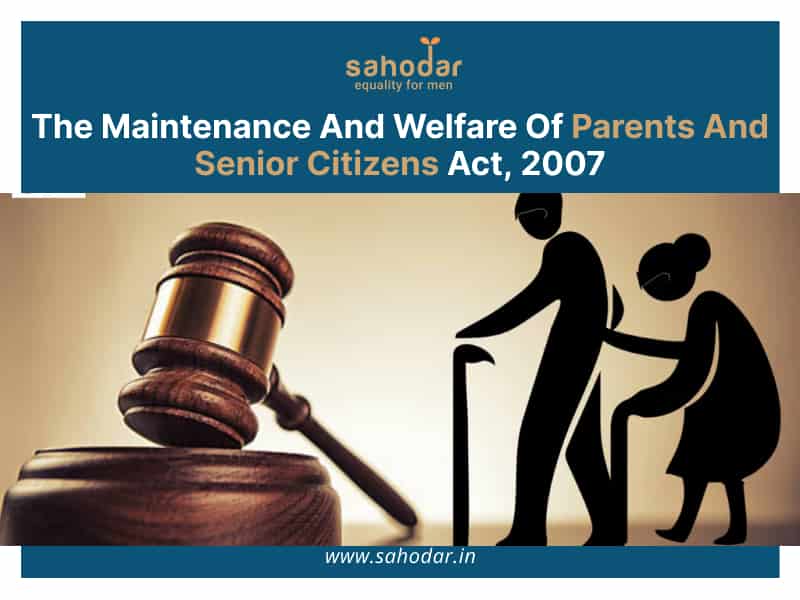The Senior Citizens Act, formally known as the Maintenance and Welfare of Parents and Senior Citizens Act, 2007, is a cornerstone of Indian legislation designed to address the pressing issues faced by India’s elderly population. With its focus on providing security, welfare, and legal support to senior citizens, the Act represents a significant step toward safeguarding the rights and dignity of older adults. This article explores the Act’s objectives, significant provisions, implications, challenges, and the way forward.
Objectives of the Senior Citizens Act
The Act was enacted to address several critical concerns surrounding the ageing population of India. Its core objectives are as follows:
- Ensuring Maintenance and Welfare: The Act aims to ensure that children or heirs take responsibility for the care of elderly parents who may be unable to support themselves financially or physically.
- Protecting Legal Rights: This legislation provides a legal framework that upholds the dignity of senior citizens, safeguarding them against neglect and exploitation.
- Promoting Social Security: The Act aims to provide senior citizens a secure environment through healthcare, housing, and general welfare provisions.
- Raising Awareness: The Act encourages society to recognise and respect the rights of senior citizens, fostering a supportive community for them.
Key Provisions of the Senior Citizens Act
The Act contains several critical provisions designed to address the specific needs of senior citizens in India.
- Maintenance of Parents and Senior Citizens
One of the central aspects of the Act is the requirement that children or legal heirs must provide financial and emotional support to their elderly parents. This provision helps to ensure that senior citizens do not experience destitution or neglect. - Right to Apply for Maintenance
The Act allows parents and senior citizens to apply for maintenance from their children if they cannot support themselves. An application can be submitted to a Maintenance Tribunal, a specialised judicial body created under the Act. This application is expected to be processed within 90 days, making it a relatively swift legal remedy. - Penalties for Neglect
To deter neglect, the Act penalises those who fail to care for their elderly parents or relatives. This includes children and relatives who stand to inherit from the senior citizen’s property. - Provisions for Health and Welfare
The Act mandates the establishment of nursing homes and promotes access to healthcare services for senior citizens. This aims to improve their overall quality of life and ensure they receive necessary medical support. - Role of the Government
The Act requires state and central governments to develop policies that directly address the welfare and protection of senior citizen. This includes setting up tribunals, providing healthcare facilities, and promoting nursing homes.
Implications of the Act on Society
The enactment of the Act has had a significant impact on both individuals and society at large.
- Empowerment of Senior Citizens
The Act empowers senior citizens with legal means to secure maintenance and care. This legal support can be a powerful tool for asserting their rights and ensuring they receive respect and consideration from family and society. - Addressing Elder Abuse
With elder abuse and neglect on the rise, this legislation serves as a deterrent, offering protection for senior citizens against exploitation, abuse, and abandonment by family members. - Changing Social Attitudes
The Act encourages society to embrace a more compassionate view of older people, emphasising families’ and communities’ responsibility to support senior citizens. - Support from NGOs and Civil Society
The Act has encouraged various NGOs and civil society organisations to engage in initiatives that provide senior citizens with legal aid, healthcare, and social support, expanding the available support network.
Challenges and Limitations of the Act
Despite its well-intentioned provisions, the Act faces several challenges that limit its effectiveness.
- Implementation Issues
The Act’s effectiveness often varies between states due to inconsistencies in local governance, resource allocation, and support structures. This inconsistency can limit senior citizens’ access to the Act’s benefits in some regions. - Limited Awareness
Many senior citizen remain unaware of their rights under the Act. Especially in rural areas, a lack of legal literacy often prevents them from seeking redress through the Act. - Cultural and Social Barriers
Traditional attitudes may discourage elderly individuals from seeking legal recourse against family members. For many, taking legal action against their children or relatives is emotionally and socially challenging.
The Way Forward: Enhancing the Act’s Impact
Several steps must be considered to ensure the Act achieves its intended goals.
- Improved Implementation
State governments must work towards better enforcement of the Act’s provisions. This includes establishing more tribunals, training officials, and ensuring timely resolutions for senior citizens seeking support. - wareness Campaigns
Governments and NGOs should launch awareness campaigns to educate senior citizen about their rights and available resources under the Act, particularly in rural and remote areas. - Community Engagement
Engaging local communities, families, and civil society in discussions on elder care can help shift societal attitudes and foster a culture of respect for senior citizens.
Conclusion
The Senior Citizens Act of 2007 is a vital legislative measure to ensure that India’s elderly can live with dignity and security. Challenges remain, but it has made significant strides in creating a framework for senior citizen welfare. This legislation can provide a secure and dignified life for India’s senior citizens through improved implementation, awareness, and societal support.

